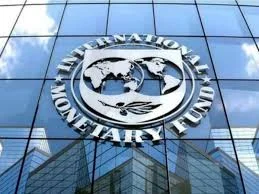Consensus is building up among government actors and economists on pursuing strict adherence to the Fiscal Responsibility Rules enshrined in the Fiscal Responsibility Act, 2018 (Act 982) to keep the Ghanaian economy on the track after the end of the International Monetary Fund programme.
Already, President John Mahama, has indicated that the current administration would not extend the current three year Ghana-IMF Balance of Payments improvement programme.
The Fiscal Responsibility Act was introduced to enforce discipline in government spending by preventing excessive borrowing that could widen the fiscal deficit beyond 5% of Gross Domestic Product (GDP). However, the government suspended these rules in the wake of the COVID-19 pandemic, citing the need for increased expenditure to manage the health crisis and its economic impact.
Meanwhile, an economist and finance lecturer at the University of Ghana Business School, Professor Lord Mensah, believes that reviving these fiscal rules should be a key focus of the upcoming National Economic Dialogue, a forum expected to shape policy discussions on Ghana’s economic trajectory post-IMF programme.
“I remember at the exit of the 2018 IMF programme, we had the Fiscal Responsibility Act and then also a fiscal responsibility supervision team made up of some economic professors at the University of Ghana and all those places. At the end of the day, we ask ourselves what has been the function of this body and then the Act?
“I think we should bring it back and ensure strict enforcement of the Act. That will be able to help us because within the Act, all the things the IMF may want us to do is in it. If the Act tells you to reduce your budget deficit to about 5% to your GDP, strictly they are telling you to be measured in your expenditure and try to enhance your revenue generation,” he said.
Consequently, President Mahama, in an interview with Bloomberg TV at the Munich Security Conference last week, clarified that while future extensions remain an option, his government is presently committed to adhering to the existing programme.
“We’ve not talked about an extension of the program. We are determined to continue with this programme,” he stated. “If it’s necessary to look at additional funds or to extend the programme, we’ll look at it, but for now we are determined to continue on this trajectory.”
President Mahama also outlined key proposals his administration presented to the IMF during their recent discussions, emphasizing the government’s commitment to addressing Ghana’s economic challenges while ensuring the success of the ongoing Extended Credit Facility arrangement.
The US$3 billion ECF, approved on May 17, 2023, spans three years and is designed to support Ghana’s economic stability and growth. The latest discussions with the IMF focused on tax rationalization, debt management, and fiscal prudence—critical areas for strengthening Ghana’s economic recovery.
A central aspect of the engagement with the IMF was tax rationalization. President Mahama criticized the previous administration’s approach of imposing multiple taxes, arguing that it had led to diminishing returns, as increased tax burdens resulted in lower revenue collection.
“Because of the target of achieving 24 percent revenue to GDP by 2028, the programme required that revenue should continue increasing at a certain rate,” he explained.
“Unfortunately, what the previous government had done was just to slap on more taxes, and we had gotten to a stage where the more taxes that were put on, the less revenue that came in. And so it’s necessary for us to look at the whole tax handle, rationalize them, make them more transparent, easy to understand, so that we can have better compliance.”
To support these efforts, President Mahama revealed that the IMF has agreed to provide technical assistance in streamlining Ghana’s tax system, ensuring efficiency and improved compliance for businesses and individuals.
Addressing Ghana’s ongoing debt restructuring efforts, President Mahama acknowledged the significant repayments due this year, particularly domestic debt obligations exceeding US$15 billion in 2025. He highlighted his administration’s proactive measures to manage these challenges, including reactivating the country’s sinking fund to facilitate debt repayments.
“We also have the issue of the debt restructuring and humps that have been created this year, we have to pay in excess of 15 billion (dollars) on the domestic debt exchange,” he noted. “So what we’ve done is to reactivate the sinking fund and put more resources into it to take care of the repayments that have to be made this year.”
He further emphasized his government’s dedication to fiscal discipline, stating that expenditure rationalization remains a priority. “We must be more prudent in our handling of our finances, we must also look on the expenditure side and see how we can cut waste and also shift resources to more priority programmes,” he stated.
As part of Ghana’s economic roadmap, President Mahama highlighted the upcoming budget presentation in March, which will incorporate insights from the IMF’s latest staff review. The fourth IMF programme review is scheduled for April, and the government is aligning its fiscal policies with recommendations from the ongoing assessments.
“The next review, which will be the fourth review, is due in April, but before that, we’ll present the budget in March,” he explained. “So the budget will take into focus some of the issues that have come out from the staff mission. We’re hoping to receive the aid memoir today or tomorrow, and looking at the issues that IMF raises, we will incorporate them in the budget.”
Despite economic challenges, President Mahama expressed confidence in Ghana’s relationship with the IMF, describing it as “cordial.” He reiterated his administration’s commitment to maintaining this partnership, ensuring the successful implementation of the ECF programme, and steering the country towards economic stability and growth.
Source: newsguideafrica.com

